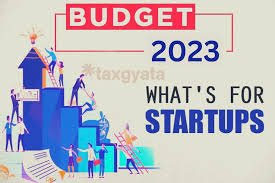The government increases start-up assistance programmes in Budget 2023

Startups play a vital role in a country’s economic development. We have taken a number of measures for start-ups and they have borne results. StartupIndia is now the third largest ecosystem for start-ups globally, and ranks second in innovation quality among middle-income countries,” said Finance Minister Nirmala Sitharaman
Finance Minister Nirmala Sitharaman on Wednesday announced in her budget speech proposed the extension of the date of incorporation for income tax benefits to start-ups from March 31, 2023, to March 31, 2024. The FM also proposed to increase the benefit of carrying forward losses on change of shareholding from seven years of incorporation to ten years.
The budget measure comes when the startup sector is seeing a funding winter as investors only put in approximately $25 billion in Indian startups in 2022, a 40 percent drop from the $42 billion raised across 1,500+ deals in 2021.
In the Budget 2022-23, the government allocated Rs 283.5 crore for the Startup India Seed Fund Scheme, which was higher than the Revised Estimates of about Rs 100 crore in the previous budget. The budgetary allocations for the Fund of Funds for Startups stood at Rs 1,000 crore.
"To unleash innovation and research by start-ups and academia, a National Data Governance Policy will be brought out. This will enable access to anonymized data," she said on Wednesday. Further, an Agriculture Accelerator Fund will be set up to encourage Agri startups by young entrepreneurs in rural areas. The Fund will aim at bringing innovative and affordable solutions for challenges faced by farmers, she said.
The government has taken a series of steps to promote startups in the country. Under the Startup India initiative, the Fund of Funds for Startups (FFS) scheme, Startup India Seed Fund Scheme (SISFS), and Credit Guarantee Scheme for Startups (CGSS) are implemented to provide capital at various stages of the business cycle of a startup.
The government launched the Startup India initiative in January 2016 with the intent to build a strong ecosystem for nurturing innovation and encouraging private investments in the startup ecosystem.
The budget rightly strikes a reasonable balance between addressing the key pillars of Inclusive Development, Human Capital, Innovation, and R&D, apart from laying the path for a robust economy by providing a major infrastructure boost," said Chandra Kant Tiwari, Founder, and President of Incubation Masters.
One of the most welcoming changes is the extension of carry forward of losses for start-ups from 7 years to 10 years (beneficial for Venture Capital firms who have usually 10 years of tenure) and the period on income tax benefit to companies registered as startups by another year are positive moves," he added.
























